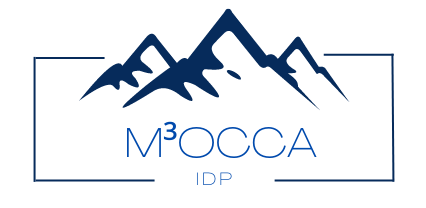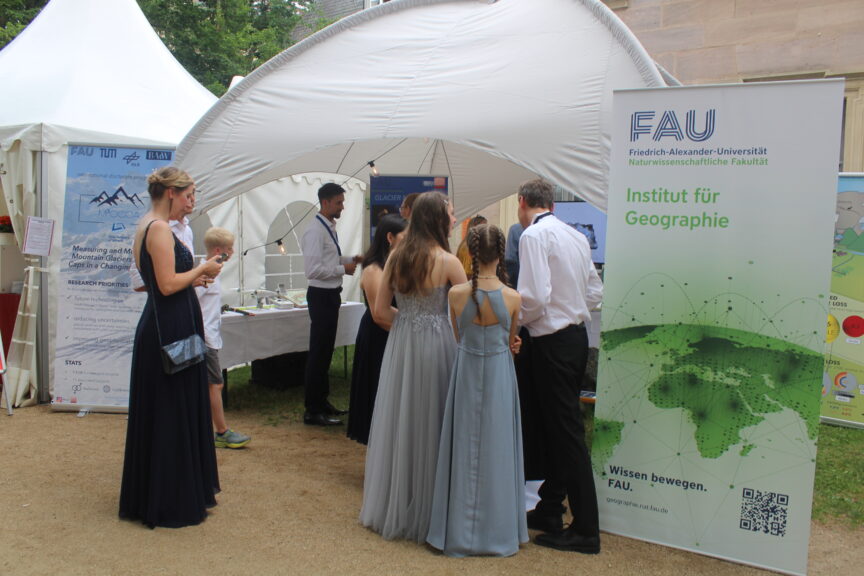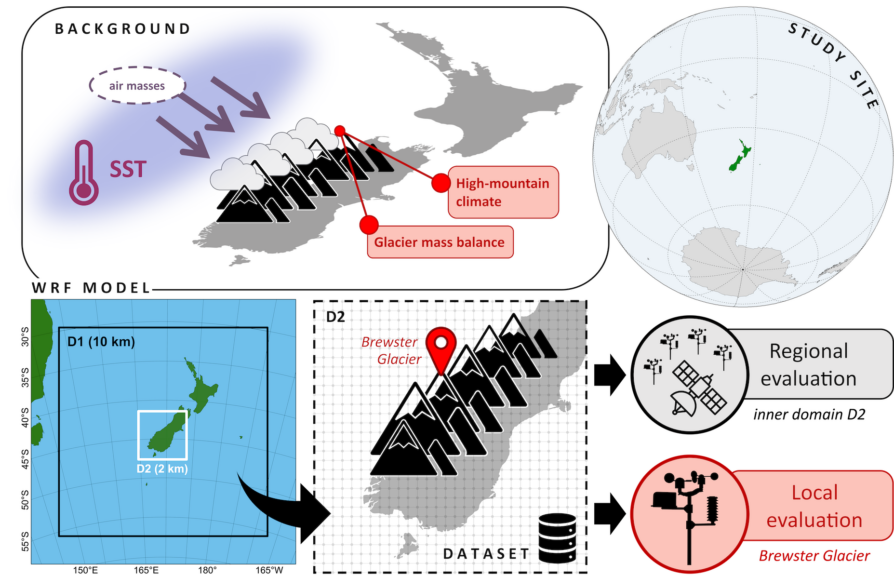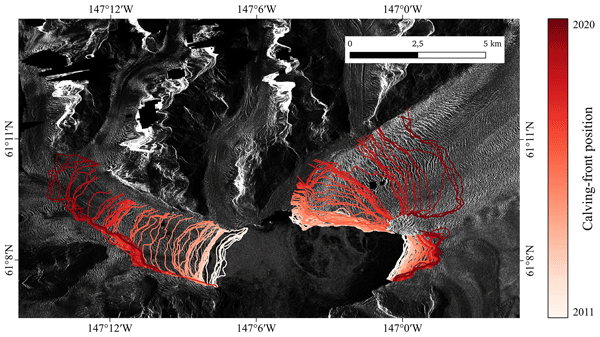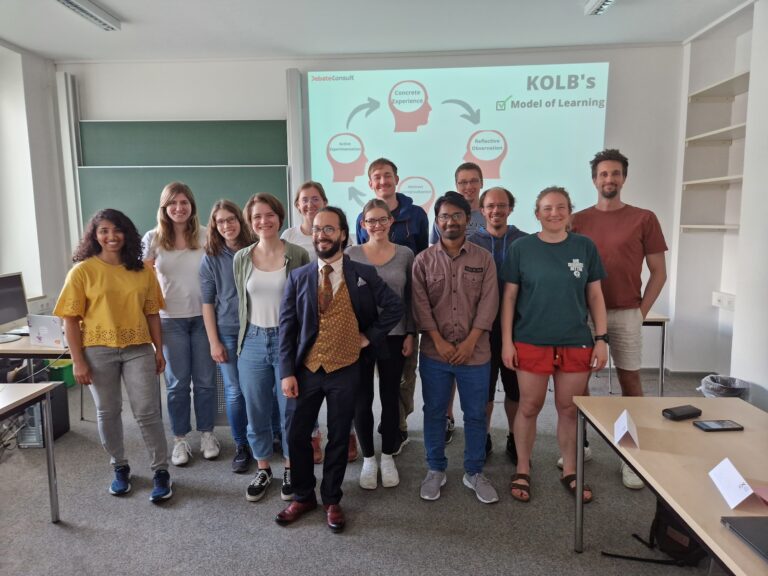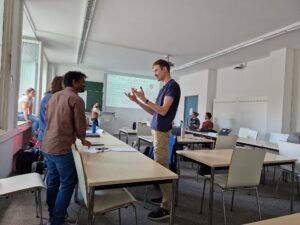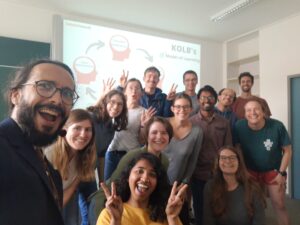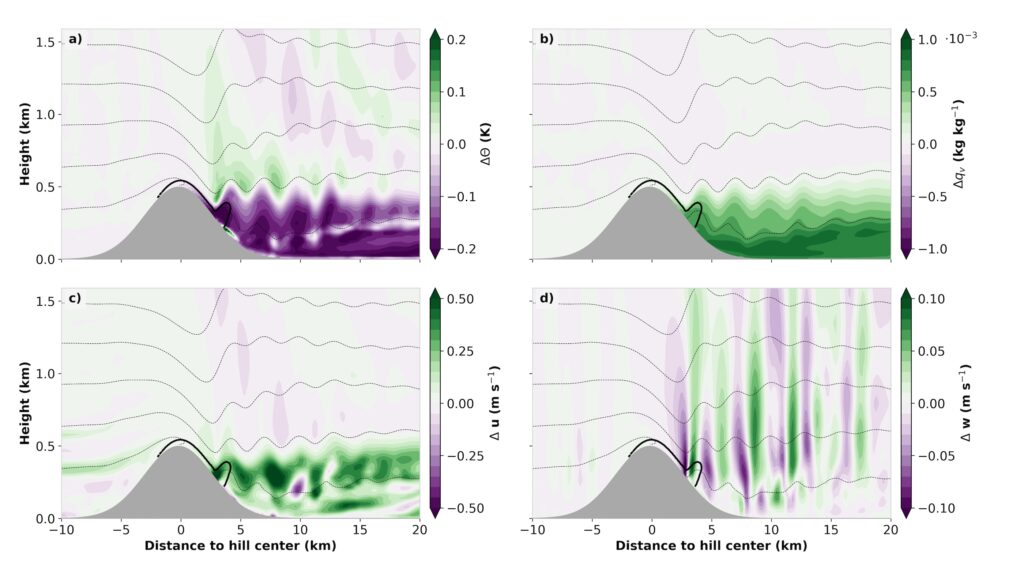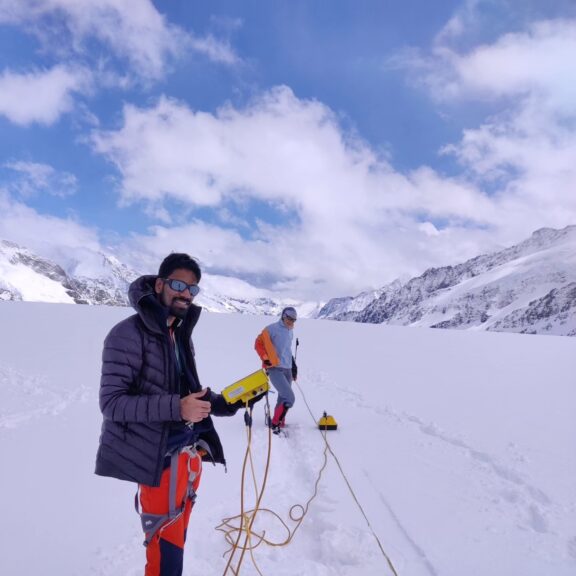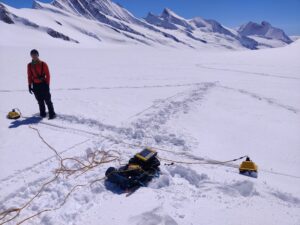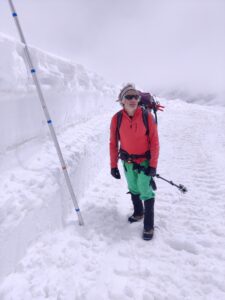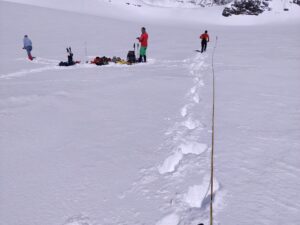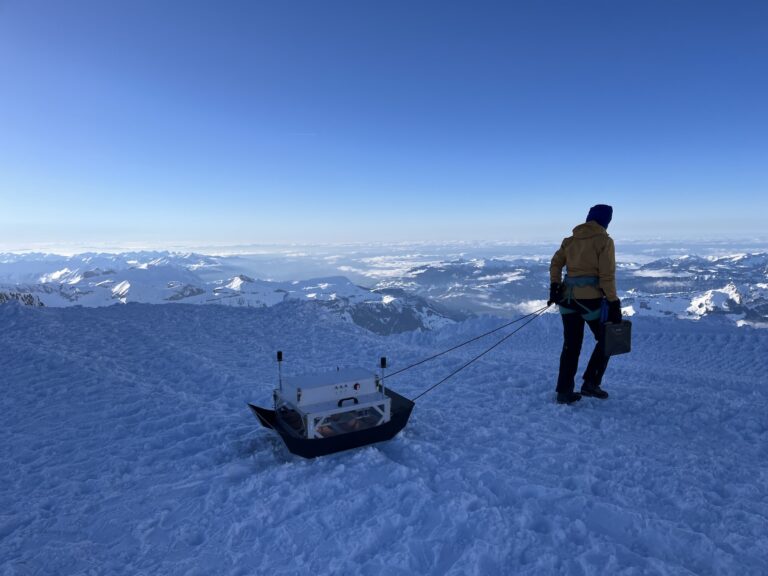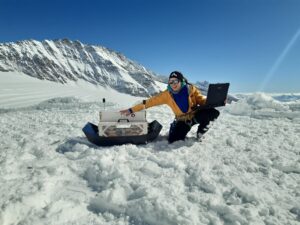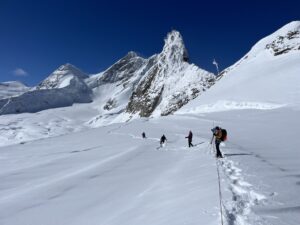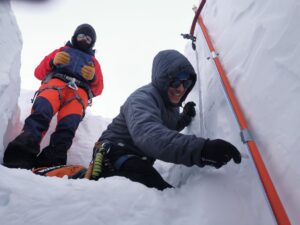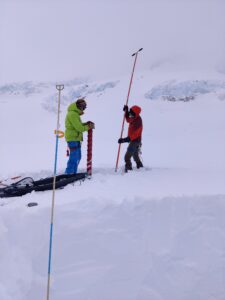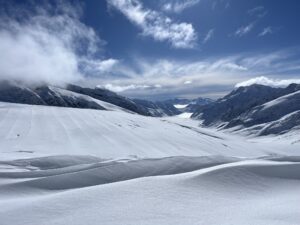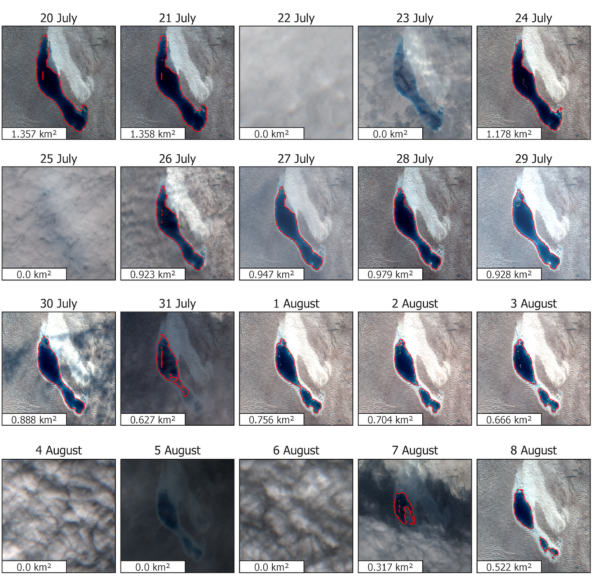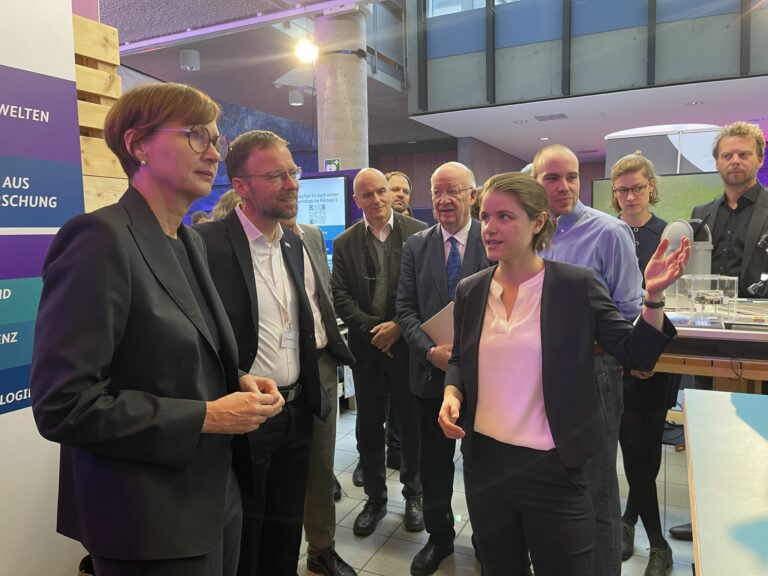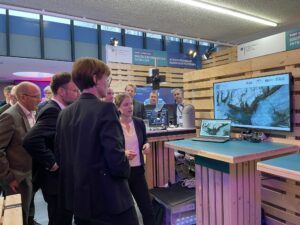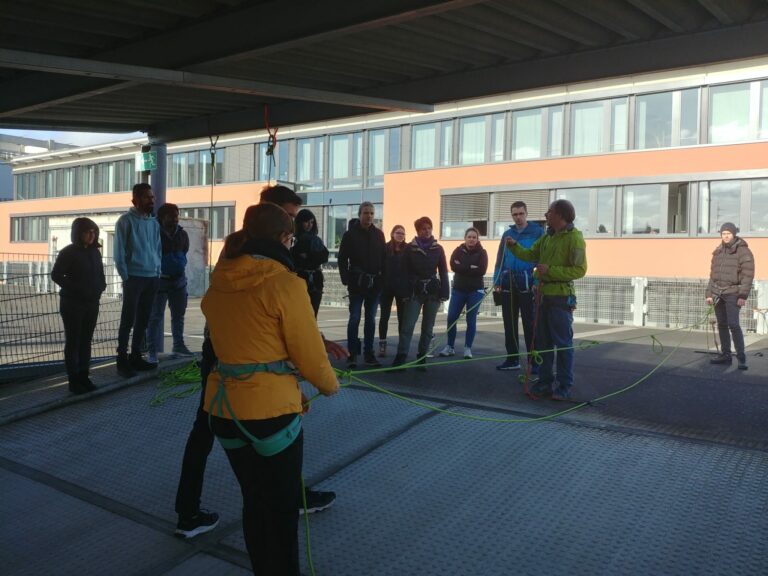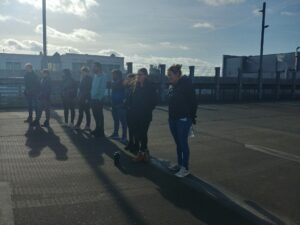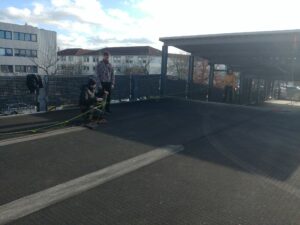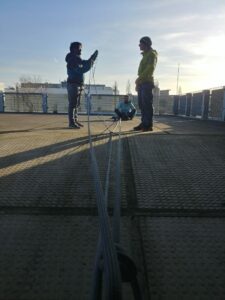M3OCCA presents research at “Meile der Wissenschaft” at the Schlossgartenfest in Erlangen
Our team had the opportunity to represent the M3OCCA doctoral program at the “Meile der Wissenschaft” during the Schlossgartenfest in Erlangen. This unique event, which brings together FAU staff and prominent figures from the region, was a blend of science, culture, alongside dancing and international cuisine until late into the night.
We were one of three scientific booths, where we presented our research on glacier modeling to a broader public. Visitors engaged in insightful conversations about our work, exploring the importance of glaciers and the impacts of climate change. We showcased the instruments and methods we use to monitor glacier changes, and participants enjoyed an interactive 3D visualization dashboard, which demonstrated glacier projections under various climate scenarios.
Our tent provided a cool space for discussions on a record-breaking hot night (thanks to an ice cube machine!), all while being dressed up in style for the occasion. The event offered a wonderful chance to share our work with the public and highlight the crucial role of glaciers in understanding our changing planet.
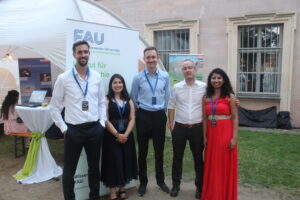
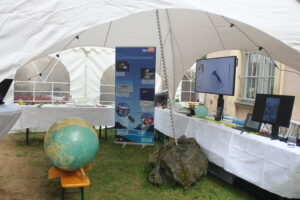
Photo copyright: Veena Prasad
